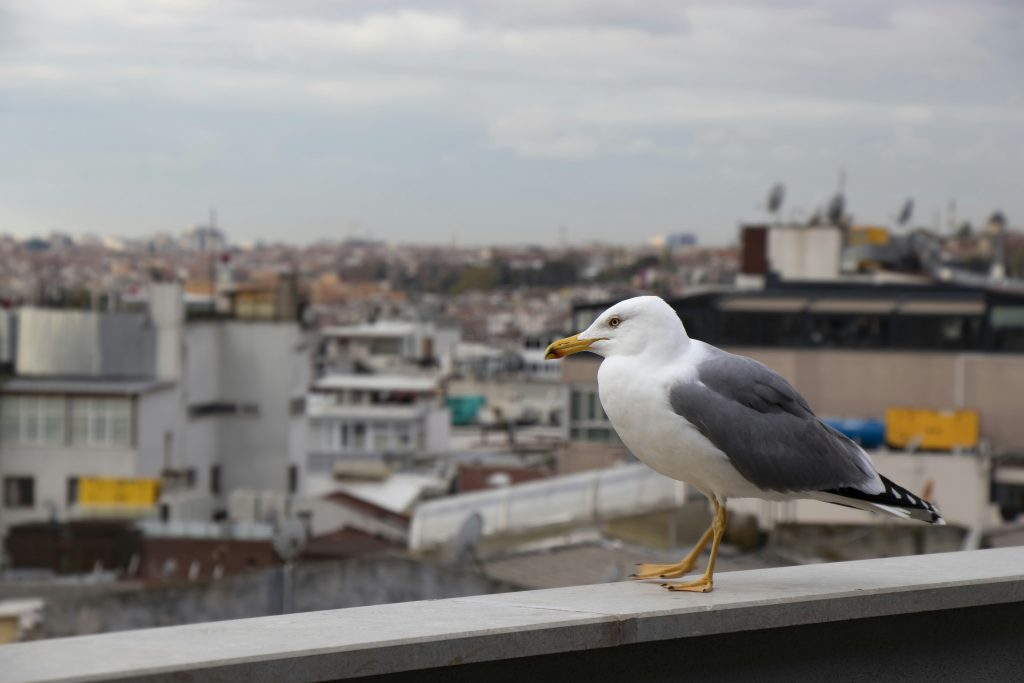Legal gull control is a serious issue for businesses, councils, and landowners. Because all gull species receive protection under the law, lethal control faces strict limits. To comply with the Wildlife and Countryside Act 1981, you must understand when licences apply and what non-lethal options are available.
Falconry offers a lawful, humane option for gull control. By flying trained birds of prey, Sky Raiders actively deter gulls without causing harm and without needing a licence.
Legal Context
The Wildlife and Countryside Act 1981 makes it illegal to kill, injure, or disturb gulls, their nests, or their eggs without authorisation.
ntil 2010, general licences permitted lethal control of some gull species. However, conservation changes removed herring gulls and lesser black-backed gulls from that list. As a result, anyone wanting to use lethal control today must apply for an individual licence from Natural England. For further background, see the Defra guidance on bird licences.
Why Falconry Works for Legal Gull Control
Natural England recognises falconry as an established, lawful method of non-lethal gull control. Therefore, falconry does not require a licence because it does not harm gulls.
Falconers must act responsibly:
- Avoid flights once eggs or chicks are present, to prevent nest abandonment.
- Use deterrence early in the breeding season, before colonies establish.
- Always prioritise animal welfare.
In addition, this approach gives businesses and councils a reliable solution for legal gull control.
When Is a Licence Needed?
Falconry itself does not require authorisation. However, certain actions always need a licence:
- Removing eggs or nests.
- Using lethal measures.
- Disturbing dependent chicks.
In these cases, you must obtain an A08 or A09 licence from Natural England. Applicants must:
- Provide evidence of serious damage, health, or safety risks.
- Show they tried non-lethal methods (including falconry) first.
- Prove conservation status will not be harmed.
Legal Gull Control UK – Key Scenarios
| Scenario | Legal Requirement |
|---|---|
| Non-lethal falconry flights, no nest disturbance | No licence required |
| Falconry causing nest abandonment or harm to young | Possible offence under Wildlife & Countryside Act 1981 |
| Lethal control or nest/egg removal | Requires A08/A09 licence |
| No attempt at non-lethal options | Licence unlikely to be granted |
FiFinal Thoughts
Legal gull control requires careful planning and strict compliance. Falconry provides a lawful, humane, and highly effective deterrent when applied responsibly.
- Use falconry early, before nesting begins.
- Avoid operations when eggs or chicks are present.
- Apply for a licence if you plan lethal or destructive measures.
As a result, Sky Raiders help businesses, councils, and venues remain compliant while keeping sites safe.
📖 Learn more about our bird control services or read our case studies.
📞 Contact us for tailored advice on legal gull control.
Discover more from Sky Raiders
Subscribe to get the latest posts sent to your email.

